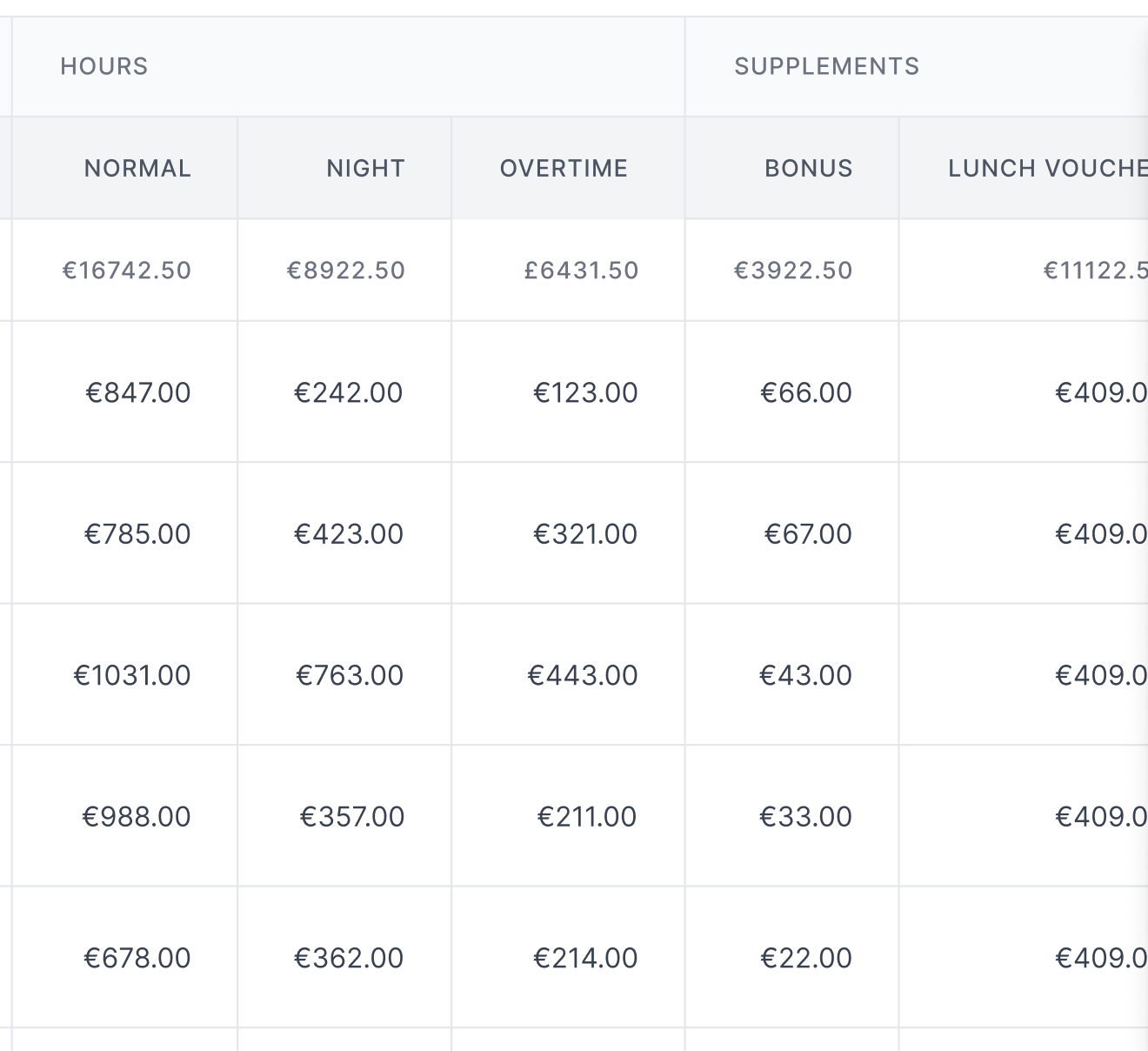Creating dynamic columns from API response
Hello! I have a problem that is driving me crazy and I wasn't able to find a solution in the docs.
Let me explain it:
An endpoint returns me an array of objects with the following shape:
https://pastebin.com/hGMQ18S5
I have attached an image of what I'm trying to achieve (the styling is not a problem).
As you can see, the key of the objects in the top level is used to name the first header, and then, a new column is created for every object in the array, where
Now, the real problem is that I can't hardcode any of these columns, since the API will return a different amount of objects in the arrays depending on filter, dates, etc, so I need to be able to generate these columns dynamically.
Here's what I've tried so far and got ALMOST working, with the exception of the header:
https://pastebin.com/vLZDyKPq
As you can see, this is kind of a mess since I'm using the real object (
Any help will be greatly appreciated, thank you very much in advance!
Let me explain it:
An endpoint returns me an array of objects with the following shape:
https://pastebin.com/hGMQ18S5
I have attached an image of what I'm trying to achieve (the styling is not a problem).
As you can see, the key of the objects in the top level is used to name the first header, and then, a new column is created for every object in the array, where
nameamountNow, the real problem is that I can't hardcode any of these columns, since the API will return a different amount of objects in the arrays depending on filter, dates, etc, so I need to be able to generate these columns dynamically.
Here's what I've tried so far and got ALMOST working, with the exception of the header:
https://pastebin.com/vLZDyKPq
As you can see, this is kind of a mess since I'm using the real object (
reports), which I know will always have hours and supplements, but I don't know about their content. I'm also nos using methods like accessorFn because I don't know how to use them in this case.Any help will be greatly appreciated, thank you very much in advance!

Pastebin
Pastebin.com is the number one paste tool since 2002. Pastebin is a website where you can store text online for a set period of time.
Pastebin
Pastebin.com is the number one paste tool since 2002. Pastebin is a website where you can store text online for a set period of time.